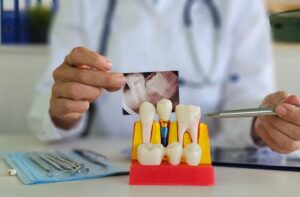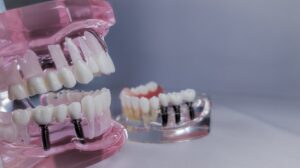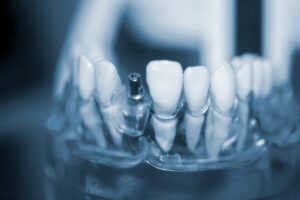How Osteoporosis Can Affect Dental Implants
According to the CDC, osteoporosis affects about 23 percent of Americans over the age of 50. Osteoporosis causes the bones within your body to become porous and brittle – including jawbones. Osteoporosis primarily affects women, but older men can experience bone loss as well.
Since dental implants rely on a strong, dense jawbone to be successful, many women are concerned their jawbones may not be up to the task. The good news is, even if you suffer from osteoporosis, there are dental implant options available to you. Here’s a brief overview.
Dental implants with osteoporosis
If you suffer from osteoporosis, your Implantologist will first examine your jawbone density. This is usually done using a CT scan. If your jawbone is dense enough to support the implants, the surgery can proceed.
However, some people have already suffered bone loss by the time they need dental implants. Depending on how severe the bone loss is, your implant doctor may be able to build up the jawbone using bone grafts. Bone grafts enable your jawbone to support the implants, even though you’ve lost some bone mass.
Currently there are no contraindications for dental implants in patients with osteoporosis, however the stabilization period of the implant may be longer. In short, the fact that you have osteoporosis doesn’t mean you won’t be able to get the dental implants you need.
Bisphosphonates and implant surgery
Bisphosphonates are drugs often prescribed to osteoporosis patients to reduce bone loss. Some bisphosphonates not only reduce bone loss, but can also rebuild bone.
However, bisphosphonates may slow the healing time after dental implant surgery. A small percentage of patients on high doses of bisphosphonates may experience implant failure. If you take bisphosphonates for your osteoporosis, be sure to tell Dr. Mike. He may recommend that we talk to your physician about discontinuing your medication for several months prior to and after implant surgery.
When you are ready to discuss your implant options, call Dr. Mike at Cleveland Implant Institute for a free consultation.
Mentor Office
6303 Center St
Mentor, OH 44060-2467
Concord Office
8245 Auburn Road
Concord, OH 44077






